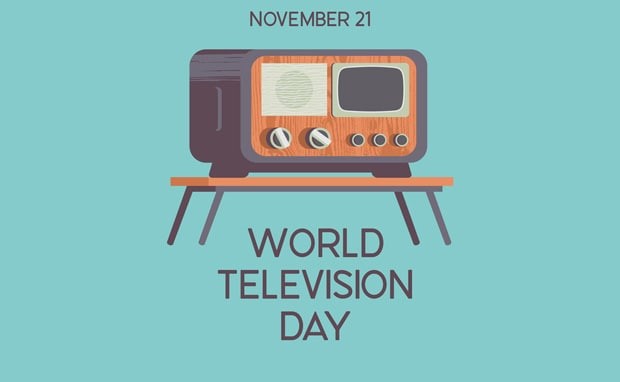
In 1996, the United Nations general assembly declared November 21 as World Television Day. The UN recognized television as having an increased impact on decision making as well as being an ambassador for the entertainment industry. Television represents a symbol for communication and globalisation in the contemporary world, and “World Television Day” is not so much a celebration of the tool, but rather the philosophy which it represents. Recognising the “increasing impact television has on decision-making by bringing world attention to conflicts and threats to peace and security and its potential role in sharpening the focus on other major issues, including economic and social issues”, the United Nations decided to observe World Television Day on November 21 every year.
In 1927, a 21-year-old Philo Taylor Farnsworth invented the world’s first electronic television. He lived in a home without electricity until he was 14 years old. In high school, he began to think of a system that could capture moving pictures, change them into a code and then move those images with radio waves to different devices. He was years ahead of the mechanical television system as his structure captured moving images using a beam of electrons. Farnsworth later famously transmitted the image of a dollar sign using his television after a fellow inventor asked “When are we going to see some dollars from this thing?” Neither of them knew that the television would become the emblem for an international day promoting the spread of global information.
On November 21 and 22 in 1996, the United Nations held the first World Television Forum. The leading media figures met to discuss the growing significance of television in the rapidly changing world and consider how they might enhance their mutual cooperation. UN leaders recognized that television could bring attention to conflicts, raise awareness of threats to peace and security, and sharpen focus on social and economic issues. Television was acknowledged as a major tool in informing, channelling, and affecting public opinion, having an undoubtable presence and influence on world politics. Because of this event, the UN General Assembly decided to name November 21 as World Television Day, not to celebrate the object itself, but the symbol for communication and globalization in the contemporary world that it represents.
In the United States on an average, people watch 3.5 hours of television a day. Whether its news, sports, concerts, shows, or movies turn to television to entertain and inform. Television as entertainment isn’t limited to the United States either. There are roughly 610 million viewers globally. Knowing there is a day devoted to its higher purposes allows us to feel better about our decision to indulge in a little T.V. at the end of the day.
At one time, television meant the box sitting in the living room that received radio waves and transmitted images. Television is a system which transmits sound and images that is displayed on a screen. It can still be the big screen in the den, but it also refers to the desktop, laptop or phone. As long as they're accessing programs, they're fair game! With its many innovations T.V. is a source of entertainment and information we access daily.
Various people meet together and promote World Television Day including journalists, writers, bloggers who spread and share their views regarding the role of television through print media, broadcast media, and also through social media. In schools, several guest speakers are invited to talk about media and communication issues. They discuss topics like what is the role of television in our lives, how television promotes cultural diversity and a common understanding, how it provides a link between democracy and television, and also the role of television in social, political, and economic developments. To outline the importance of television to democracy, peace, and world stability, various conferences and lectures are held all over the world. This day also renews the role of governments, organisations, and individuals to support the development of television media in providing unbiased information about important issues and events that affect society.
To support the international news media and to reach audiences, the United Nations provides a suite of multimedia products and services by covering the work both at Headquarters and around the world. UN videos are also produced for news, social platforms, and also for broadcast partners in six official languages including French, Spanish, English, Chinese, Arabic, and Russian, and also in Hindi, Kiswahili, and Portuguese. Breaking news, events, etc. are also shared with partners in raw packages by UNifeed which enables news providers to cover important global issues by offering timely broadcast video throughout the system of UN. New stories are posted on the website of UNifeed as soon as they become available from the global network of UNB specialised agencies, funds and programmes, peacekeeping operations, and UN Headquarters.
Therefore, World Television Day is celebrated on 20 November to raise awareness among people about the role it plays in communication and globalisation.
Author
Deepa Lakshmi K MBA ( II Year )
2021-11-21